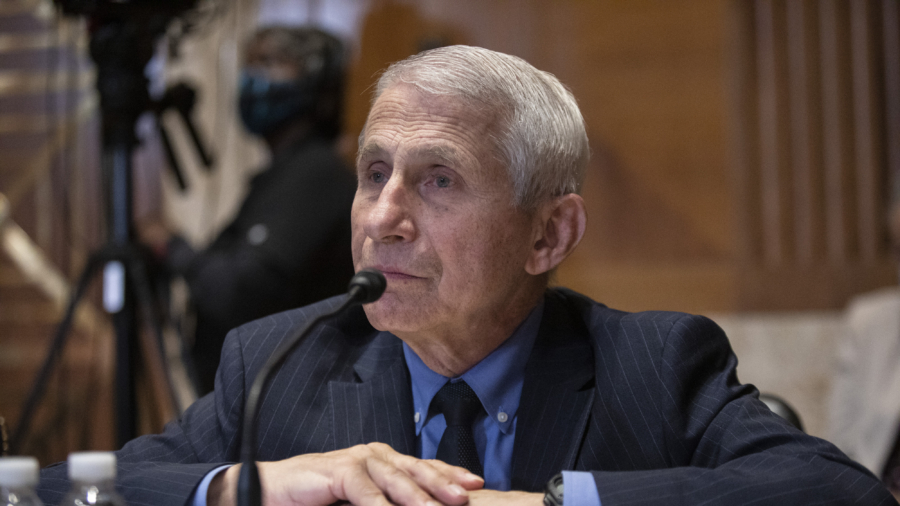President Joe Biden’s administration is seeking to block deposition of several key officials, but Dr. Anthony Fauci is not one of them.
A judge recently ordered Fauci, Biden’s top medical adviser, and other high-level officials to testify in a case alleging collusion between Big Tech companies and the government to censor users.
In a motion for a partial stay on Oct. 27, U.S. lawyers said that plaintiffs should not be able to depose Surgeon General Vivek Murthy, a Biden appointee; Cybersecurity and Infrastructure Security Agency Director Jen Easterly, a Biden appointee; and Rob Flaherty, a deputy assistant to the president.
“The Court’s Depositions Order would require the relevant high-ranking government officials to divert time from their professional duties to prepare for, and participate in, time-consuming depositions,” the motion states.
The government plans to ask the U.S. Court of Appeals for the Fifth Circuit to direct U.S. District Judge Terry Doughty, the Trump appointee who ordered the depositions, to vacate the portion of the order that relates to Murthy, Easterly, and Flaherty.
While the appeals court resolves the request, Doughty should halt the depositions of the trio, according to the motion.
Absent a stay, “high-ranking governmental officials would be diverted from their significant duties and burdened in both preparing and sitting for a deposition, all of which may ultimately prove to be unnecessary if the Court of Appeals grants” their request, the government motion states.
The motion stems from disagreement with Doughty’s decision and concern that having the officials sit for depositions would “distract” them from their duties, including overseeing efforts related to the upcoming midterm elections.
The government lawyers also asserted that relief is warranted because they are likely to succeed in their request.
They suggested the appeals court would receive the request on Friday, but no such request had been filed as of Oct. 29.
Plaintiffs, including the attorneys general of Louisiana and Missouri, oppose the request, defendants said.
Defendants also plan to file a motion in federal court in Virginia to quash the deposition of Jen Psaki, the former White House press secretary.
Doughty authorized eight depositions in his Oct. 21 order, including depositions of Fauci, Psaki, FBI special agent Elvis Chan, Murthy, Centers for Disease Control and Prevention official Carol Crawford, and State Department official Daniel Kimmage.
He also ordered the depositions of Flaherty or former White House COVID-19 adviser Andrew Slavitt and of Easterly or Lauren Protentis, another official in the cybersecurity agency.
Doughty rejected the government’s arguments, including the assertion that plaintiffs did not meet the high bar necessary to depose high-ranking officials.
The evidence shows that Fauci and other top officials, the judge said, have personal knowledge about censorship across social media platforms, citing the emails and text messages that have been produced in discovery in the case.
The judge acknowledged that appearing for depositions is a burden.
But that burden is outweighed by a need to have more information when making rulings in the case, he said. In Fauci’s case, he said that he “does not see any burden imposed on Dr. Fauci that outweighs the Court’s need for the information in order to make the most informative decision on the pending Motion for Preliminary Injunction filed by Plaintiffs.”
If the motion is granted, defendants, including Biden himself, would be barred from pressuring social media platforms to censor or suppress the speech of users.
From The Epoch Times

